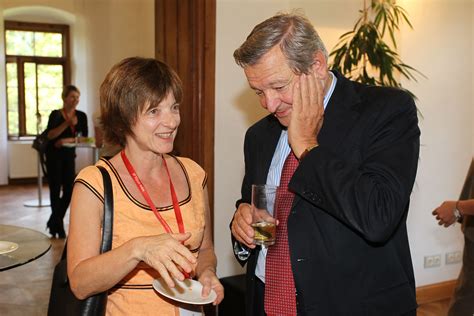A Quote by Joseph Jacobs
I have come to the conclusion that a goodly number of the fables that pass under the name of the Samian slave, Aesop, were derived from India, probably from the same source whence the same tales were utilised in the Jatakas, or Birth-stories of Buddha.
Related Quotes
Though now we think of fairy tales as stories intended for very young children, this is a relatively modern idea. In the oral tradition, magical stories were enjoyed by listeners young and old alike, while literary fairy tales (including most of the tales that are best known today) were published primarily for adult readers until the 19th century.
We Are All the Same
Listen to the reeds as they sway apart;
Hear them speak of lost friends.
At birth, you were cut from your bed,
Crying and grasping in separation.
Everyone listens, knowing your song.
You yearn for others who know your name,
And the words to your lament.
We are all the same, all the same,
Longing to find our way back;
Back to the one, back to the only one.
Siblings may be ambivalent about their relationships in life, but in death the power of their bond strangles the surviving heart. Death reminds us that we are part of the same river, the same flow from the same source, rushing towards the same destiny. Were you close? Yes, but we didn't know it then.
When you lose the story that's running like a golden stream underneath all the other stories, you're left with the idea that the Bible is a collection of random-seeming stories about various Bible characters that we're supposed to learn lessons from - almost like an Aesop's Fables. And a book of rules that God wants us to keep so he will love us. And we lose the glorious truth of the Bible that we were loved before even the beginning of time. That God had a plan. That no matter what, he would never stop loving us.
It's my firm conclusion that human meaning comes from humans, not from a supernatural source. After we die, our hopes for an afterlife reside in the social networks that we influenced while we were alive. If we influence people in a positive way -- even if our social web is only as big as our nuclear family -- others will want to emulate us and pass on our ideas, manners, and lifestyle to future generations. This is more than enough motivation for me to do good things in my life and teach my children to do the same.
India was China's teacher in religion and imaginative literature, and the world's teacher in trignometry, quandratic equations, grammar, phonetics, Arabian Nights, animal fables, chess, as well as in philosophy, and that she inspired Boccaccio, Goethe, Herder, Schopenhauer, Emerson, and probably also old Aesop.








































